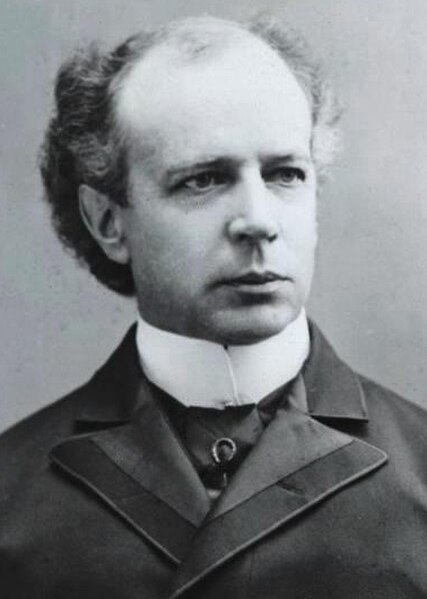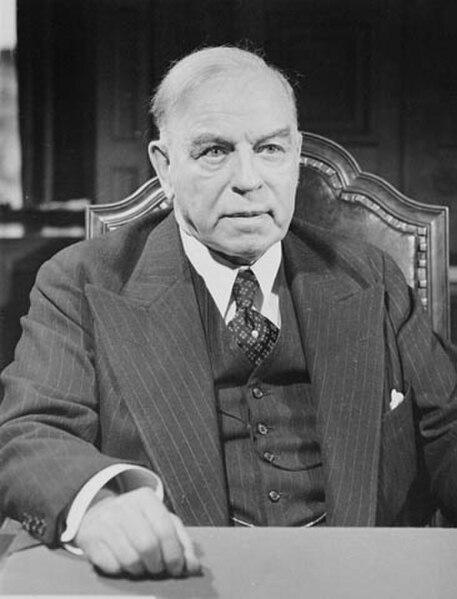Sir Henri Charles Wilfrid Laurier, was a Canadian lawyer, statesman, and politician who served as the seventh prime minister of Canada from 1896 to 1911. The first French Canadian prime minister, his 15-year tenure remains the longest uninterrupted term of office among Canadian prime ministers and his nearly 45 years of service in the House of Commons is a record for the House. Laurier is best known for his compromises between English and French Canada.
Laurier in 1906
Bedroom at Sir Wilfrid Laurier National Historic Site, Saint-Lin-Laurentides, Quebec
Laurier in 1874
Opposition Leader Laurier, 1890
The prime minister of Canada is the head of government of Canada. Not outlined in any constitutional document, the office exists only per long-established convention. Under the Westminster system, the prime minister governs with the confidence of a majority of the elected House of Commons; as such, the prime minister typically sits as a member of Parliament (MP) and leads the largest party or a coalition of parties. The prime minister is appointed by the monarch's representative, the governor general, and, as first minister, selects other ministers to form the Cabinet and chairs it. Constitutionally, executive authority is vested in the monarch, but, in practice, the powers of the monarch and governor general are nearly always exercised on the advice of the Cabinet, which is collectively responsible to the House of Commons. Canadian prime ministers are appointed to the Privy Council and styled as the Right Honourable, a privilege maintained for life.
Prime Minister of Canada
John A. Macdonald, the first prime minister of Canada (1867–1873, 1878–1891)
Canada's prime ministers during its first century
William Lyon Mackenzie King, the 10th prime minister of Canada (1921–1926; 1926–1930; 1935–1948)








